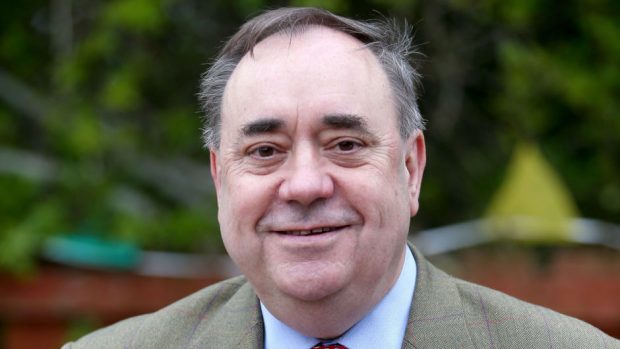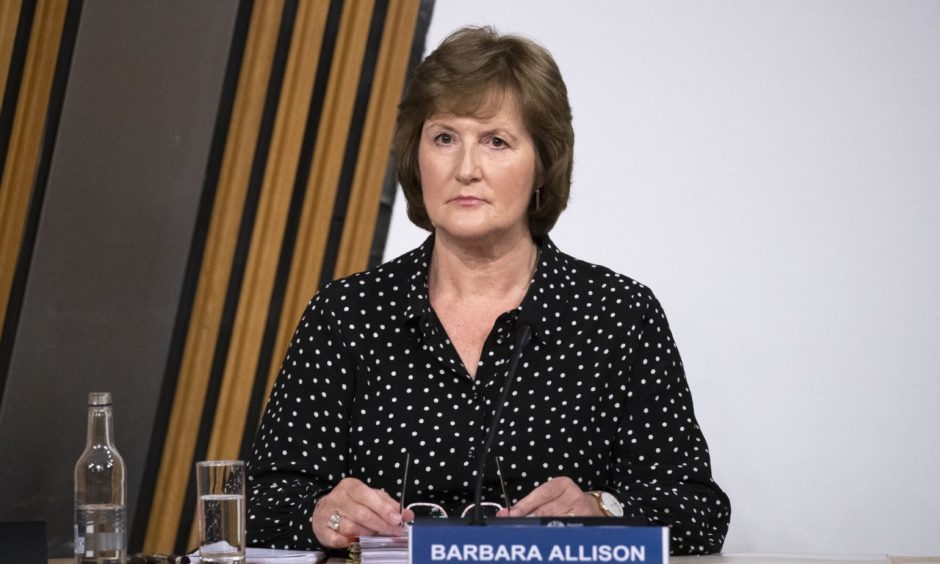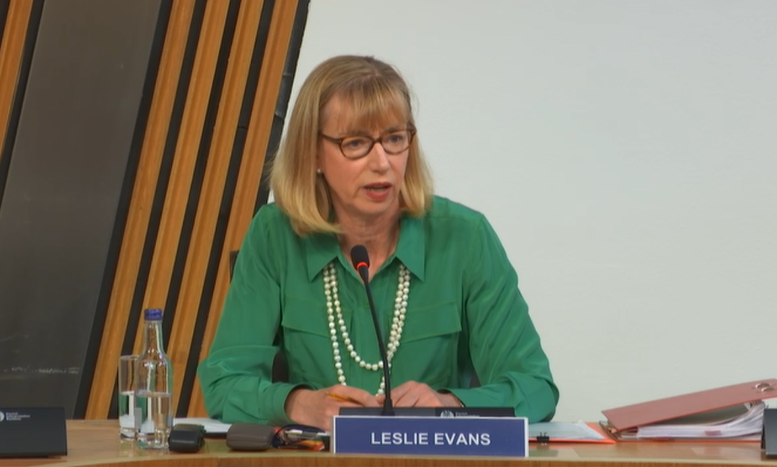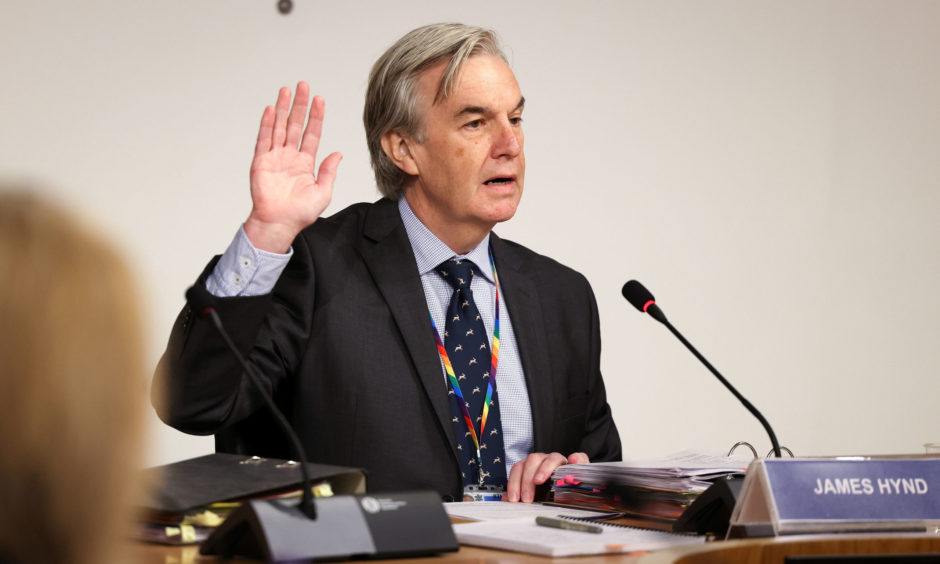The official who led the Scottish Government’s botched investigation into claims against Alex Salmond has become the latest civil servant to apologise for giving misleading evidence on oath.
Judith Mackinnon was the investigating officer into two complaints of sexual misconduct against Mr Salmond and is one of several civil servants to have been forced to correct or clarify their accounts given to the Salmond inquiry.
During her oral evidence to MSPs examining the Scottish Government’s handling of its internal inquiry into Mr Salmond’s behaviour, Ms Mackinnon was asked by Labour’s Jackie Baillie if she had advised any of the complainants that she was going to be investigating officer before her appointment had been confirmed.
Appearing in person, Ms Mackinnon said she did not tell either of the women, who later made complaints, that she would be the investigating officer.
Please accept my apologies for inadvertently providing an incorrect answer…”
Judith Mackinnon
Subsequently, Ms Mackinnon wrote to the Holyrood committee overseeing the Salmond inquiry to say that she had, in fact, indicated to one of the complainants, known as B, that she was likely to have that role.
In her letter, Ms Mackinnon said: “I have reviewed the Official Report and identified that I have inadvertently provided an incorrect response to a question asked by Ms Baillie about whether I had advised any of the complainants that I was going to be appointed as the Investigating Officer prior to that appointment being confirmed. I am writing to you now at the first opportunity to correct the record.
“Having reviewed the answer I provided against my records, I can confirm to the Committee that in an e-mail I sent to Ms B, I gave an indication that I would likely be the Investigating Officer… In that e-mail, I provided Ms B with advice about the process that would apply if a formal complaint was received.
“As part of that advice, I indicated that she would be interviewed and that the interview was ‘likely to be led by myself’. Although I did not explicitly say that I was to be appointed as the Investigating Officer, I gave a clear indication that it was likely that I would be.”
Ms Mackinnon added: “Please accept my apologies for inadvertently providing an incorrect answer and I would be grateful if the record could be updated to reflect the correct information provided in this letter.”
‘Tainted with apparent bias’
The role played by Ms MacKinnon lies at the heart of the Salmond inquiry because it was key to the collapse of the Scottish Government’s case when Mr Salmond challenged in a judicial review.
The Court of Session found the Scottish Government’s handling of the complaints against Mr Salmond was unlawful, unfair and “tainted with apparent bias”. The ruling led to the Scottish Government paying out more than £500,000 for Mr Salmond’s legal costs.
Crucial to that judgement was the fact that Ms Mackinnon had prior contact with the complainers.
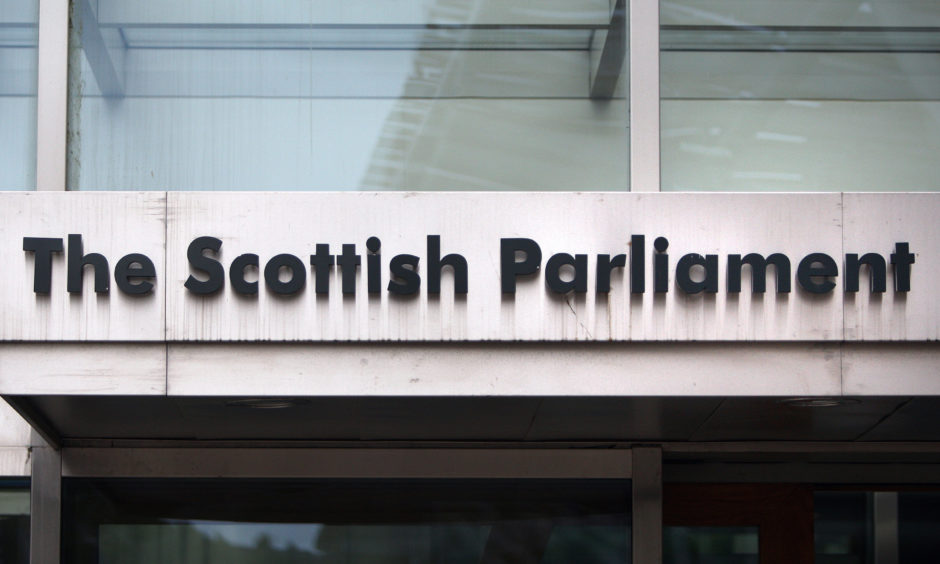
Paragraph 10 of the Scottish Government’s complaints handling procedure says the investigating officer “will have had no prior involvement with any aspect of the matter being raised”.
Ms Baillie, who sits on the Salmond inquiry, said: “It is shocking that senior civil servants come before the committee and, despite being on oath, fail to give candid answers.
“Some suffer from selective amnesia and others have to subsequently correct their evidence to the committee because they got it wrong the first time.
“The Scottish Government needs to start treating this inquiry seriously.”
During the inquiry, other civil servants have corrected or clarified their evidence
Barbara Allison, communications director
Barbara Allison gave oral evidence during which she initially denied receiving a text from Permanent Secretary Leslie Evans, after Mr Salmond won his civil case, which read: “Battle maybe lost, but not the war.”
Later she wrote to the inquiry and admitted she had, in fact, received the message and to “correct the unintended inaccuracy” in her previous appearance.
She wrote after asking the Crown Office for copies of material retrieved from her mobile phone in the context of Alex Salmond’s criminal trial. The material she received back confirmed she had received the message.
Mr Salmond was cleared of all charges of sexual assault when he was tried earlier this year.
During a second appearance in front of the Salmond committee, Ms Allison said the text in question had been deleted.
Leslie Evans, permanent secretary
Scotland’s most senior civil servant, Leslie Evans, apologised for giving inaccurate information after she appeared in front of the Salmond inquiry.
Ms Evans told MSPs she was unaware of Scottish Government special advisers having played a role in the government’s response to the judicial review brought by Mr Salmond.
She said she would not see a “natural role” for a special adviser in that process.
However, in a letter to the committee, Ms Evans corrected her evidence, saying a special adviser had taken part in meetings about the case.
A freedom of information response last year listed 17 meetings at which lawyers involved in the judicial review met Nicola Sturgeon or senior staff, a special adviser present at three meetings in October and November 2018.
In her letter Ms Evans wrote: “My answer on this point in oral evidence to the committee was based upon my best recollection at the time but I accept that the record shows that the information above is correct.
“I apologise for not having that level of detail at the front of my mind in answering the point put to me.”
James Hynd, head of the Scottish Government’s cabinet, parliament and governance division
James Hynd wrote to the inquiry to clarify evidence about Alex Salmond’s behaviour. When he appeared in front of MSPs in August he was asked by Lib Dem MSP Alex Cole-Hamilton if he had heard any “scuttlebutt”, “rumour mill” or “mutterings” about Mr Salmond’s conduct in relation to bullying or sexual misconduct.
Mr Hynd replied that “things were said” but he had no idea if they were true.
Two weeks later Lib Dem MSP Alex Cole-Hamilton referred to Mr Hynd’s oral evidence, claiming that “in his words, ‘things were said’ to him as part of an informal hum of rumours about bullying and sexually inappropriate behaviour by Alex Salmond and other ministers”.
In his letter, the civil servant wrote: “I said that I had heard things about Mr Salmond’s behaviour but that I was in no position to say whether that hearsay and rumour was true or not.
“I also said that those unsubstantiated rumours did not relate to matters within the scope of the Harassment Procedure, which includes matters of sexual harassment.
“In other words, my intention was to make clear to the committee that I did not at any time hear rumours regarding allegations of inappropriate sexual conduct relating to Mr Salmond.”
He added: “As I have noted above, I wish to be clear that I was not aware of any rumours about ‘sexually inappropriate behaviour’ on the part of Mr Salmond or other ministers.”
